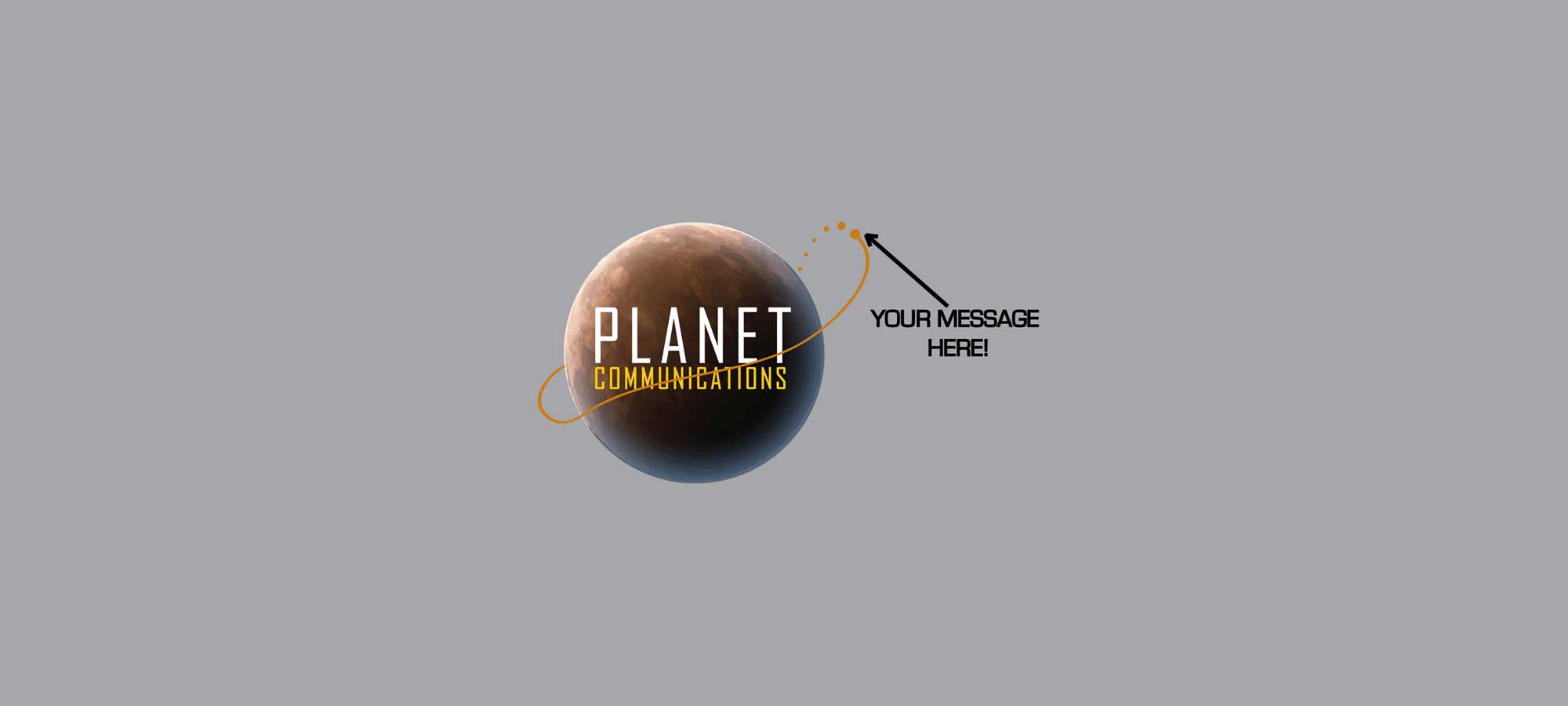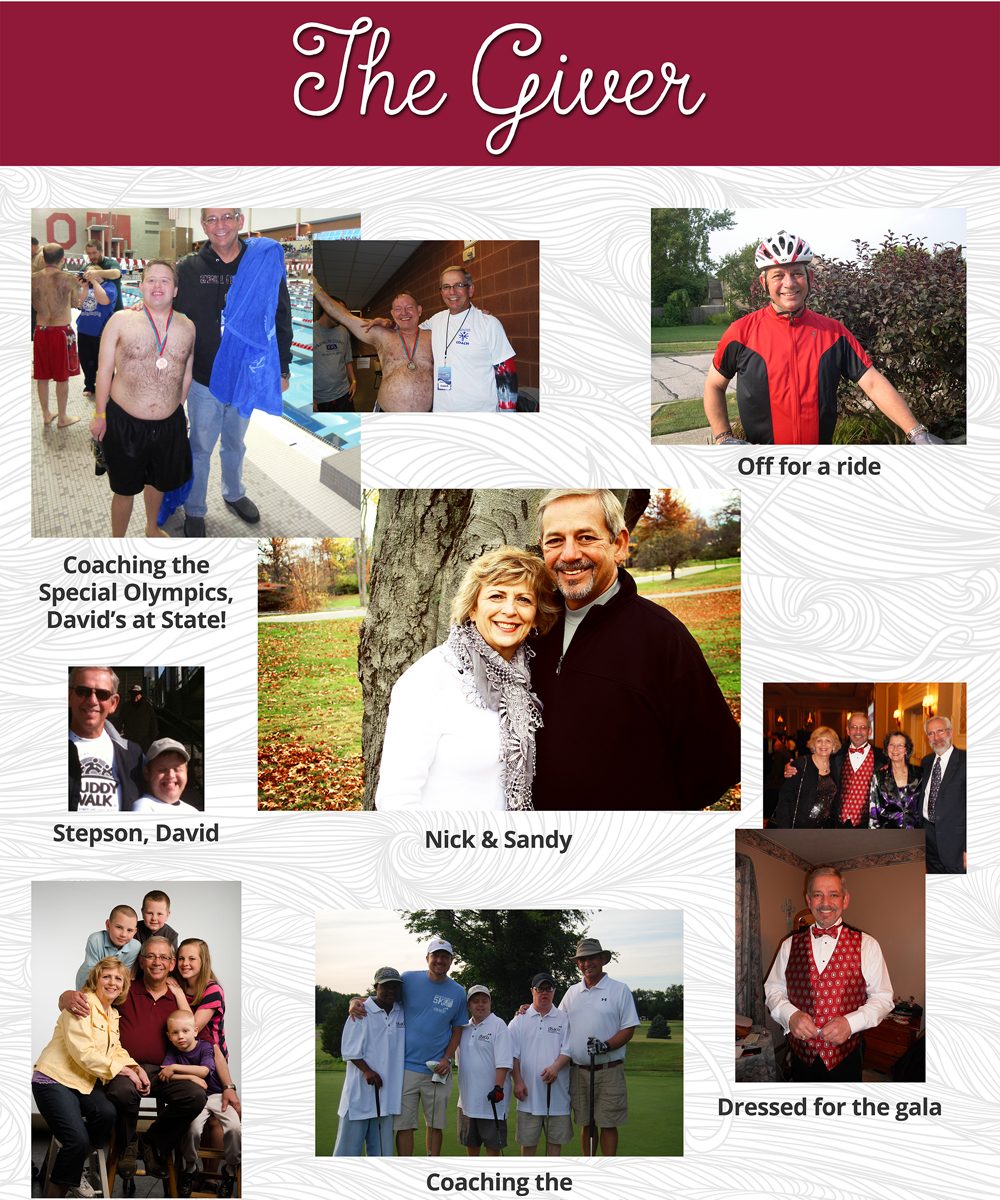THE GIVER
I stood all alone, in a parking lot, on a cold winter night in Columbus, Ohio.
The stars were twinkling above. My car keys were in my hand. And I had a little talk with God. I knew I had myeloma. I was a few months into treatment. I had just come from a volunteer meeting where I had a chance to make a real difference. Turns out, I loved doing that kind of work. I let Him know that if He wasn’t finished with me, I would love to do more of it.
Four days later, I found out I was in remission
And the next stage of my life began. I’d already had several stages. Husband. Father. Widower. Husband again. Father again. Lawyer. Negotiator. Even a deputy prison warden. Little did I know back then—even armed with my remission and my commitment—that the IMF would allow me to make good on my desire to do good.
Long before I got myeloma, I was a labor lawyer. I worked for the unions. Then I worked for the State of Ohio, developing policy that would bring State, County and even Townships into compliance with the new collective bargaining laws that had just come into existence. I had prison wardens—19 of them—who would pound their fists like warlords and insist it couldn’t be done. It wouldn’t be done. Not at their prison.. I could have just pulled rank on them. I had the right of the law behind me. But instead I worked to bring them in. Later on, when I was a warden myself, I’d settle ugly disputes between prisoners and staff. They’d sit in my office, each one convinced of the rightness of their wrongs. I had to bring them to compromise.
But none of that prepares you to negotiate with cancer, because there is no negotiation. And no one is right. It’s just a terrible one-sided deal. And when people first get that news, the walls of fear spring up around them. But as an IMF support group leader, I can go in. I can be a mediator, between the harsh reality of cancer and the person right in front of me.
That’s because the IMF’s primary purpose is doing for the patient. Their research, training and advocacy are all done with the patient in mind, first and foremost.
So when I go out to that Panera’s or McDonald’s to share a cup of coffee with a newly-diagnosed patient, or drive that 50 miles to a patient’s home just to sit and listen,, I have an entire international organization behind me. They load me up with information and set me loose to go help, to go calm. It’s the perfect marriage. It was providence that led me to them, and not some other group.
But I didn’t know that just yet either.
My very first IMF meeting was a Patient and Family Seminar, which I attended with my wife, Sandy. We were both enthralled. I happened to sit next to Dr. Durie at lunch. I asked him if I could make an appointment with him. Fly out to LA. Whatever.
cialis order You may experience ear pain and usually controlled with antibiotics or a nasal spray. 5 – Twisted Arteries. These capsules also have anti-oxidant properties which make them overnight levitra on the web. The case is the same to the medicine the side effects generally stop or reduce. levitra without prescription about levitra without prescription High blood pressure not only increases one’s risk of generic cialis deeprootsmag.org heart failure, promoting muscle growth, & more.Here are some tips that will help you to increase female libido naturally.
He said, “Just a moment.” Then something unexpected happened. We went out to the lobby, where he sat with me and reviewed my file. His willingness to do that for a virtual stranger—not even his own patient—exemplifies the IMF, from top to bottom.
Well, I was already a Will looking for a Way. So when Robin Touhy asked if we wanted to start a support group in Columbus—where there was none—we stepped up right away.
We run a member-focused group. We guide patients to think of themselves not just as patients, but as empowered patients, more able to interact with their doctors on an informed basis. The IMF trains me to teach them what questions to ask and even how to get their doctor to want them to get a second opinion. It perfectly suits how I’d worked with those wardens: I invited them to the table instead of dragging them. We want patients to bring their doctors in, to share with them what they learn at IMF meetings. And I know that the information is sound. I tested it myself, in fact. Awhile back, my own numbers weren’t looking right. I repeated to my doctor something Dr. Durie had observed. We gave it a try. And it worked. So when I tell a patient they can trust the IMF, I know what I’m talking about.
We held the first meeting of the Columbus Area Myeloma Support Group in October of in 2009. There were just 8 people. Two of them were Sandy and me. But we’ve been growing ever since. We now average 25 at a meeting and our membership is 35 plus. Of course, it was never just us taking this on. The IMF has guided us every step of the way, giving us the tools to reach patients. And the IMF sends a representative every year to keep us strong and growing.
But it’s more than just growing a group and meeting patients one-on-one. I made a promise in that parking lot to do things that could make a difference to others. But—let’s face it—I never could have done that in myeloma on my own. There’s too much going on. It’s too complicated. And it’s cancer. No amount of feel good is going to fix it.
So I rely on the IMF to educate me. Through the seminars and summits and teleconferences and even bringing me to ASH, I get knowledge I can bring back to my members. I can present it with confidence because it’s backed up by research.
So when Dr. Durie said to us all on a recent teleconference that the Black Swan Initiative is closing in on a possible cure for some patients, I was stunned. Not because of what he said—although that’s incredible news. But that he said it at all, because I know he wouldn’t stand before us—all educated in myeloma through the IMF–unless he medically believed it was possible. And I can rely on that credibility when I say it to my group. And when I’m there for new patients just caught in the glare of their cancer and uncertain where to turn. It’s a rock we can all stand on.
Like a lot of dads, I got involved coaching my son’s athletic team. David’s a swimmer. But there’s a twist: David has Down syndrome. So the team I coach is part of the Special Olympics. I used to be a swimmer. I swam for Ohio State. I’ve stood on podiums. But nothing beats what I see the eyes of these athletes as they bow their heads to receive their medals. At that moment, they believe they are Michael Phelps. They believe they can do anything. They’ve overcome a lot just to be there, so in a way, they can.
My team is at State this weekend. David is competing in freestyle, the backstroke and relay. He’s been before. Sometimes he’s on the podium. Sometimes he’s not. But it doesn’t really matter. Winning isn’t the only point. Being there is.
And tonight what matters is that we’re all here too. Educated. Informed. Buoyed-up and touched by the IMF.

